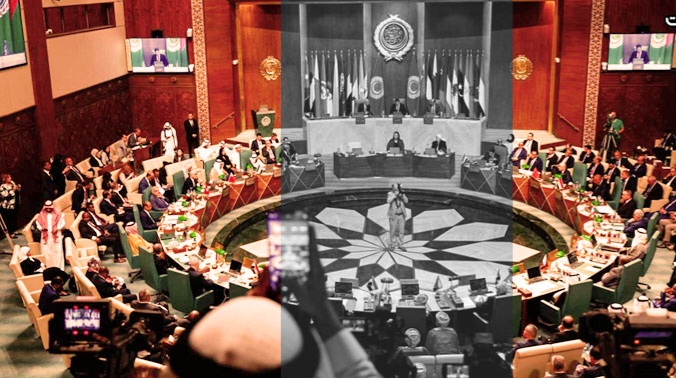Alwaght- At the peak of the Arab nationalism in the 1960s and early 1970s led by the then President of Egypt Gamal Abdul Nasser and Syria’s Baathist Party, the bonds between patriotic movements and the Palestinian liberation and the anti-Israeli occupation struggle of the Palestinian people occupied the biggest part of the political and social atmosphere in the Arab world. The Palestinian cause was the driving force behind formation of the Arab League in 1946, a reality that presented itself several times in the Arab wars against the Israeli occupation.
However, with the passage of time, it can be conspicuously seen that these days the Palestinian cause does not evoke the sensitivity of the Arab countries to counter the occupation or even provides an excuse for them to put aside their differences and unite their ranks.
In this regard, in addition to the role of important variables like Camp David agreement between Egypt and the Israeli regime under President Anwar Saddat and next deals of compromise like Oslo Accords between the Palestinian Liberation Organization and Tel Aviv in 1993, a key variable was the transfer of the centrality of the Arab League from Egypt and Syria— and to some degree Algeria and Libya— to the Persian Gulf Arab monarchies that actually initiated a shift in the Arab League from revolutionary, anti-imperialist, and idealist nationalism to a conservative approach complying with the Western interests that naturally produced minimalism in the Palestinian anti-occupation struggle and led to recognition of the Israeli regime.
The concrete sign of this approach shift showed itself in the 2002 Arab peace plan of Saudi Arabia and in fact the (Persian) Gulf Cooperation Council. The proposal came at the cost of recognizing Israeli occupation of a large part of the Palestinian lands and legitimizing the existence of Israel. Despite the fact that the Israelis have not fulfilled any of their obligations and gradually occupied more of Palestinian lands in the West Bank with illegal settlements, this proposal remains the face of the policy of the Arab League in its dealing with endless Palestinian plight.
The conservative approach of the Arab League under the leadership of the Arab monarchies practically led to the drop in the strategic importance of the Palestinian cause in the Arab world. Since the Arab uprisings of 2011 and eruption of conflicts in Syria, Yemen and Libya, the regional powers’ obsession with geopolitical rivalry and proxy conflicts resulted in further Arab League distancing from the Palestinian cause.
During this period, even in many times, the Arab League as a lever for the governments of the Persian Gulf adopted approaches in line with the interests of the Israeli regime in regional developments. For example, under Saudi Arabia’s duress, this bloc labeled Lebanese Hezbollah a terrorist group in 2016, a decision that was seen as a clear sign of the entanglement of regional interests with those of the Israeli regime.
In the past, Arab countries were rivaling each other for supporting the Palestinians, but the Persian Gulf policy over the past few facades has focused on burying such an Arab thirst for backing the Palestinian cause under such slogans as regional peace and linking the economic growth to normalization with the Israelis. This reduced the Palestinian cause to a second or third rate one.
This passive, anti-Palestinian approach that heavily overshadowed the positions of a majority of Arab countries, especially Persian Gulf monarchies, comes as poll results have repeatedly suggested that Arab popular views are different from the policies of governments and lean to full support to the Palestinian pro-liberation struggle and opposition to any overt and covert relationship with the Israeli regime. However, in the absence of powerful political parties in the Arab civil society and due to the authoritarian or, at best, pseudo-democratic political structure of these countries, the popular views do not very much sway the decisions of the leaders.
A survey conducted by the Arab Opinion Index in 2017-2018 showed strong support for the Palestinian cause among Arabs. In this survey, a total of 77 percent of the respondents believed that Palestine belongs to the Palestinians, and 87 percent were against normalization with Tel Aviv. Also, another poll by the Arab Youth Survey in September 2023, in which 3,600 Arab citizens from 18 to 24 participated in 53 cities from a total of 18 Arab countries, 61 percent believed that the Palestinian case is a priority.
Despite the fact that in the Persian Gulf monarchies serious restrictions are imposed on rallies and demonstrations and for example in a country like Saudi Arabia rallies in support of Palestine are illegal and even considered as enmity to the God and people in the past days in the Shiite-majority city of Qatif were warned not hold any pro-Palestinian rallies, in the past few weeks people took to the streets in the Arab countries to express their anger at the Israeli massacre of Gazans.
But in seems that neither the heightening popular fever of discontentment with the governments nor the catastrophic humanitarian situation in Gaza will not lead to substantial changes to the pragmatic policy of these monarchies regarding the Palestinian-Israeli conflict and not even the normalization process, a reality whose abhorrent face can be seen in the arrangement of Saudi celebrations while Gaza people are subject to Israeli bloodshed.



























